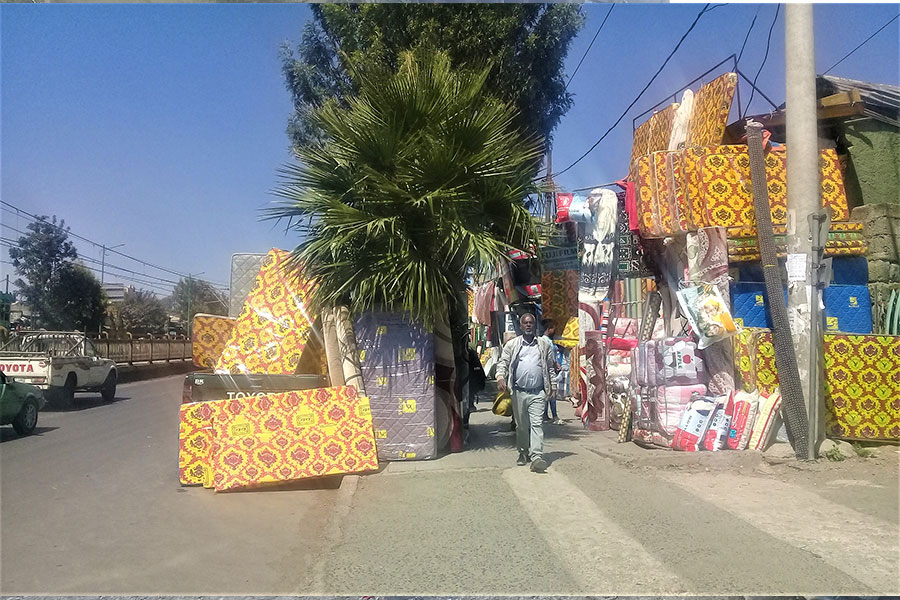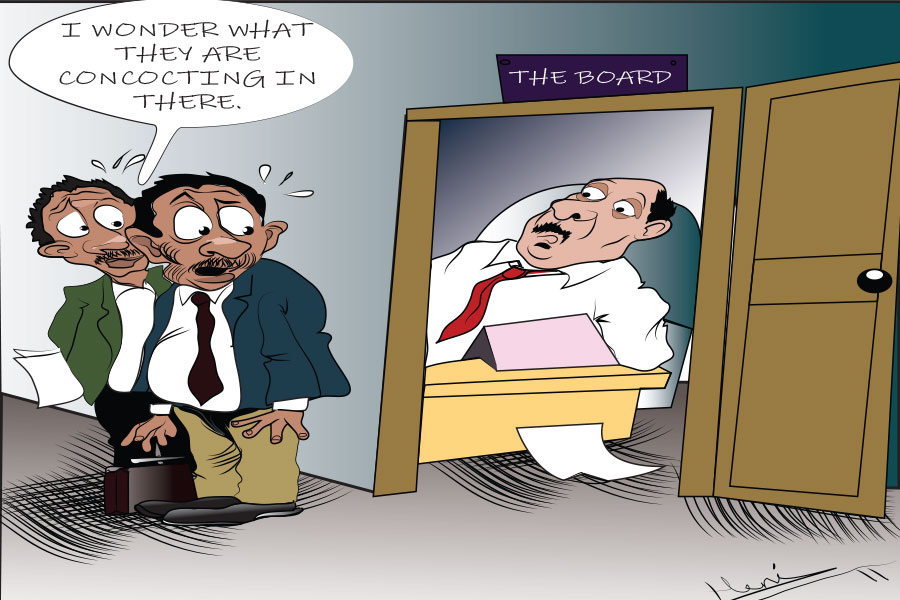
Radar | Jan 01,2023
Jul 24 , 2021
By SAMSON BERHANE ( FORTUNE STAFF WRITER )
Bidders showed a lack of appetite for the latest auction floated by the National Bank of Ethiopia (NBE) to sell 40 billion Br worth of treasury bills.
Tasked with managing securities that will go to finance the government's budget deficit, the central bank received only 14 billion Br in offers during the latest auction, though the weighted average yield (interest) for all classifications of bills exhibited a substantial increase.
It is a disappointing outcome for officials who are desperately looking for funds to narrow the deficit, projected to reach 144 billion Br this year (excluding grants). The tepid interest for the bills is attributed to the disparity between the market interest rate, which has reached as high as 13.5pc in the case of time deposits, and the average yield offered by bidders thus far.
The latest yield recorded for all bills has been the highest since the government liberalised the market at the end of 2019 to enable private entities to buy the security based on market-determined rates.
With 11.6pc yield, the 91-day treasury bill received better offers, accounting for half of the bids received during the latest auction. In contrast, bidders showed less interest in the 364-day treasury bills, buying 1.8 billion Br worth of the security for an average yield of 10.6pc.
The latest central bank report for the second quarter of 2020/21 shows that Ethiopia’s T-bill market, as usual, has been characterised by oversupply.
According to a review carried out by Cepheus Capital a year after authorities liberalised the market, private banks and pension funds supplied the government with close to 95 billion Br in financing – with the highest yield recorded during the same period being 9.3pc for 182-day bills, reaching 10.7pc now.
A market demand of 14.7 billion Br against a supply of 40 billion Br indeed indicates little investor interest.
Political uncertainty, domestic conflict, external pressure, sanctions and delayed debt relief may have played a role in the lack of interest, according to Patrick Heinisch, an economist and capital market researcher.
"This is particularly worrisome as the government plans to resort more frequently to the domestic market to compensate for the loss of budget support that remains suspended by major western donors," he told Fortune.
The federal government hopes to get 66.8 billion Br (1.5 billion dollars at the current exchange rate) in foreign aid to finance its budget deficit for the fiscal year, despite facing backlash from development partners over the humanitarian crisis in Tigray Regional State, where over 854 million dollars is required to feed 5.2 million people who are in need of urgent assistance, according to UN-OCHA.
The ambitious plan surfaced just a month after the parliament approved a 26.4 billion Br supplementary budget due to a gap created by development partners, which officials criticise for having “failed to keep their promises."
For observers and potential bidders, the government, which is likely to face a budget squeeze with surges in expenditure, has to offer better interest on T-bills to grab the attention of more investors. Last year, T-Bills made up nine percent of its domestic debt.
"The low yield on T-bills compared to savings deposits has made investments in T-bills unattractive," remarked Heinisch. That, in fact, was one reason that has pushed the NBE to consider obligating insurers to invest at least 40pc of their admitted assets in T-bills, though this is yet to be implemented.
"We don't want to invest in T-bills as the interest is very low compared to what we get from depositing our money in banks," said Meseret Bezabih, CEO of United Insurance, which had collected 551.2 million Br in premiums from both life and non-life insurance by the end of the third quarter of the just-ended fiscal year.
It seems private banks are also less interested in buying T-bills, which made up roughly four percent of their total lending in December 2020, leaving the government to stick with its age-old buyers: private and public services social security agencies.
"We buy T-bills only if we have excess funds that we don't lend to our customers," said Asfaw Alemu, president of Dashen Bank, whose assets totaled 68.3 billion Br by the end of last year, with an annual profit of 1.5 billion Br.
Asfaw expects demand for the security would further decline as the tax season approaches, particularly during October 2021.
"That is usually a time when we work under tight liquidity conditions," Asfaw added.
For Abdulmenan Mohammed, a financial expert with almost two decades of experience, the lack of interest for the latest T-bill auction could be seasonal.
"As the yield is increasing, banks may even shift to buying T-bills at the expense of customers' borrowing. This, coupled with the strong interest of the government to finance its deficit through T-bills, would further increase the yield for it," he remarked.
The direct advances the federal government took from the central bank saw an 83.4pc annual decline by the end of the last fiscal year, as the government shifted to treasury bills and bonds to finance the budget deficit.
Eyob Tekalign (PhD), state minister for Finance, while defending this year's budget before parliament, affirmed the government's emphasis on T-bills, which he said, is instrumental to curb the inflationary pressure caused by the increase in the money supply.
PUBLISHED ON
Jul 24,2021 [ VOL
22 , NO
1108]

Radar | Jan 01,2023

News Analysis | Jan 05,2020

Radar | Sep 27,2025

Commentaries | Jul 31,2021

Editorial | Jun 26,2021

Viewpoints | Nov 16,2024

Radar | Feb 12,2022

My Opinion | Oct 24,2020

Editorial | May 21,2022

Editorial | Apr 06,2019

Dec 22 , 2024 . By TIZITA SHEWAFERAW
Charged with transforming colossal state-owned enterprises into modern and competitiv...

Aug 18 , 2024 . By AKSAH ITALO
Although predictable Yonas Zerihun's job in the ride-hailing service is not immune to...

Jul 28 , 2024 . By TIZITA SHEWAFERAW
Unhabitual, perhaps too many, Samuel Gebreyohannes, 38, used to occasionally enjoy a couple of beers at breakfast. However, he recently swit...

Jul 13 , 2024 . By AKSAH ITALO
Investors who rely on tractors, trucks, and field vehicles for commuting, transporting commodities, and f...

Oct 18 , 2025
The political establishment, notably the ruling party and its top brass, has become p...

Oct 11 , 2025
Ladislas Farago, a roving Associated Press (AP) correspondent, arrived in Ethiopia in...

Oct 4 , 2025
Eyob Tekalegn (PhD) had been in the Governor's chair for only weeks when, on Septembe...

Sep 27 , 2025
Four years into an experiment with “shock therapy” in education, the national moo...